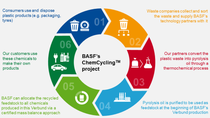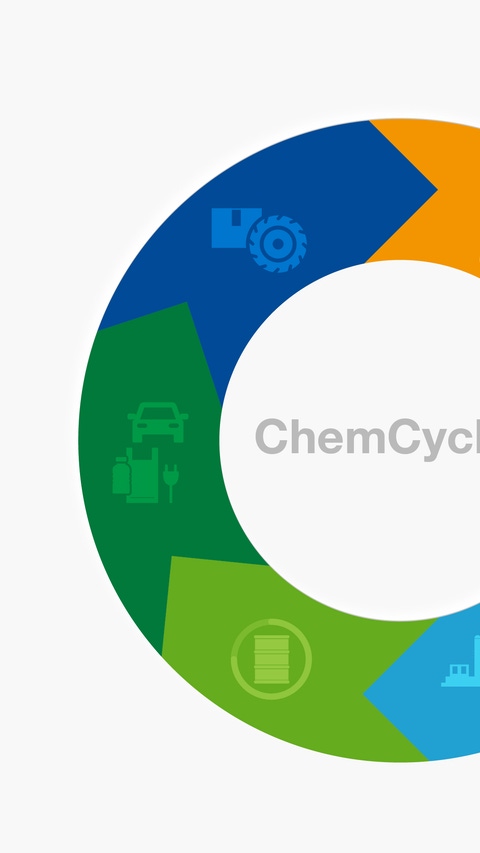Who we are
Chemistry enables recycling of plastic waste
Plastic waste, and in particular plastic waste in the context of marine littering, is perceived as a major global challenge. There is an increasing regulatory pressure regarding recycling quota and recyclability on the one hand and strong commitments of our customers towards increasing the share of recycled material in their offerings on the other hand. Solving these challenges requires innovation and joint efforts globally across the value chain.

What is ChemCycling?
BASF has taken up this challenge and developed a chemical recycling project: ChemCycling. Through thermochemical processes, plastic waste is broken down to oil or gaseous products which become raw materials for the chemical industry. These raw materials can replace fossil feedstock in the Verbund and be used to produce new products, especially plastics. Through a third-party certified system, we can allocate the proportion of recycled resources in each product.
What are the advantages of chemical recycling?
Chemical recycling allows to recycle plastics for which there are no other recycling solutions available today: mechanical recycling is well suitable to recycle pure materials, which are available via collection and sorting in large quantities. However, our waste also contains plastic products in which several types of plastics have been combined for optimal performance, plastics with adhering residues (e. g. food residues on packaging) and plastics which cannot be economically sorted for recycling. Chemical recycling can be a way to recycle these materials, and thus divert them from the incineration plants or landfills in which they would otherwise end up. Chemcycling represents an exciting business opportunity for us and our customers, as the resulting products are of equal quality to the products derived from fossil feedstock.
Is chemical recycling environmentally benign?
At the end of life of a plastic product, the most eco-efficient solution should be chosen. As chemical recycling is an option to recycle mixed, multi-layer or other complex plastics, it is complementary to mechanical recycling and can be a more sustainable alternative to incineration or landfill. With a life-cycle analysis we ensure that this innovative approach creates value for the environment.
In the pilot phase, BASF presented first prototypes to customers. These included mozzarella cheese packaging, transparent refrigerator components and insulation boxes for sensitive applications.
